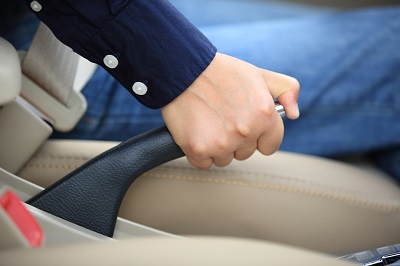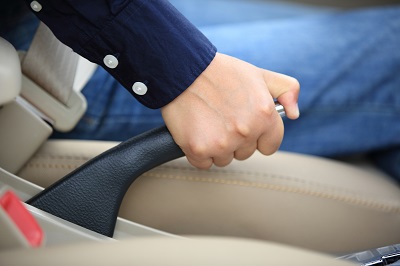
How does brake failure work? To put it another way, what happens when your brakes don’t work? It’s an open-ended question for sure. Behind tire issues, brake failure is the most common cause of road accidents in the United States. But if you ask the average driver – even those folks who’ve been lucky enough to survive an accident caused by brake failure – they probably don’t fully understand what happens when the brakes go bad.
A Gradual Process
Keep in mind, brakes typically don’t fail overnight, or even within a few hours. For brakes to completely fail, a lot of things have to go wrong. Many maintenance reminders have to be skipped. Uncommon noises have to be ignored. And those wobbles, shimmies and other weird movements have to likewise be shoved under the rug (or at least the floor mats).
Granted, those are some pretty serious symptoms, most of which (if not all) would give even the most inexperienced driver pause before getting back behind the wheel. Think back to when you first started driving. Chances are, whenever you heard or felt something a little “off” with the brakes, you asked a more seasoned driver (or even your local mechanic) what was wrong.
So for brake failure to happen, many bad things in a row must occur. But before defining brake failure, let’s examine what parts and components must fail for the entire brake system to go bad.
Brake Failure – The Components Responsible for the Catastrophe
Brake failure is simply this: a complete loss of braking power. Screeching brake pads, wobbly rotors, semi-strong resistance with the brake pedal – they’re all signs that your brakes need work, but they don’t define complete failure.
Any driver who has gone through total & comprehensive brake loss never forgets – especially those drivers cruising along a highway at a high speed or approaching an intersection. To press the brake pedal and not get a response is a truly frightful episode.
Total lack of brake power has its roots in both hydraulic and mechanical processes. If your car is low in brake fluid, it’s a hydraulic issue. For pretty much everything else, it’s on the mechanical side of things. No pad resistance, warped rotors, a faulty master cylinder – when these components fail, stopping or even just slowing down is a near monumental task.
Let’s do a quick component review on your car’s brake system. Based on each description, brake failure occurs when the given part fails to do its given task. Here are the parts, and the specific jobs they’re responsible for.
Brake fluid – based on motion from the master brake cylinder, brake fluid pushes the caliper pistons or drum brake systems to engage.
Brake pads – squeeze each side of the rotor to slow & stop your car.
Calipers – hold brake pads in place, and also utilize piston movement to activate brake pads.
Rotors – also called the wheel hub, the rotors generate friction from the brake pads to slow & stop axle.
Drum brakes – typically found on the rear axle, drum brakes use shoes (fancy term for brake pads) to compress outward against the drum’s interior.
Master brake cylinder – based on pressure from brake pedal, sends brake fluid to each wheel (whether a caliper or drum brake) to activate pads & shoes.
This handful of parts & components is what makes your brake system work. When any of these parts (or a combination thereof) stops working completely, you have brake failure, plain and simple. Common sense maintenance methods are the best possible way to avoid brake failure. Take any part we’ve just listed, and give each one a visual examination every oil change. If your brake pads appear worn, replace them. If your rotor is rusted up, get a new one. Low brake fluid? Top off the reservoir, and then find out why the fluid was low in the first place. Basically, just make sure each part looks and performs like it should on a regular basis. Most instances of brake failure happen due to negligence.
Stay on top of brake maintenance, and your car will reward you for it! Skip maintenance, and you’re rolling the dice, both for you and your passengers.
Other Causes of Brake Failure
Aside from pure mechanical or hydraulic problems, there are a few external circumstances that can impact brake performance. Thankfully, most of those (weather, road debris, etc.) don’t cause your brakes to completely fail. But there are some other potential hotspots you have to keep your eyes on:
Grease or oil. When can engine problems become brake problems? When your car is leaking a significant amount of oil. If oil happens to flow onto the rotors or brake pads, you could experience total failure. Oil is an anti-lubricant, and the rotor – pad dynamic is based purely on friction…lots of it. No friction = no brake power.
Too much heat. When that pad – rotor friction we just mentioned gets too intense, certain problem areas called “hot spots” develop. Basically, they’re no-friction zones.
Hold the (brake) line. To use a medical analogy, think of brake lines as the veins & arteries of your brake system. If there’s a problem with your lines (rust, wear & tear, etc.), you’ll eventually lose fluid. And that means you’ll eventually lose complete brake power. Give your car’s undercarriage an inspection every few thousand miles, especially if during bad winters and other inclement weather periods.
How Brake Failure Doesn’t Work
Thanks to ABS (anti-lock braking system) technology, there is a stopgap measure in place to prevent brake failure. To prevent too much force applied to any wheel at any given time, your car (unless you drive something from the 1950s) has an ABS module in place. The module works with sensors positioned near each wheel to detect speed and other variables that might contribute to your brakes “locking up.” Additionally, the ABS also features brake pressure regulation capability; this prevents too much or not enough brake fluid from getting where it’s supposed to go.
We hope this blog was helpful in explaining what happens when your car’s brakes go kaput. As you’ve probably figured, keeping your car’s brake components running well is in your best interest to avoid brake failure. For the best brake parts available online, BuyAutoParts.com offers a huge selection for any type of job – and pretty much every type of car!
To order brake replacement parts today, browse our inventory or give our brake part experts a call at (888) 907-7225. Thanks for reading our blog!
Written by Dara Greaney






